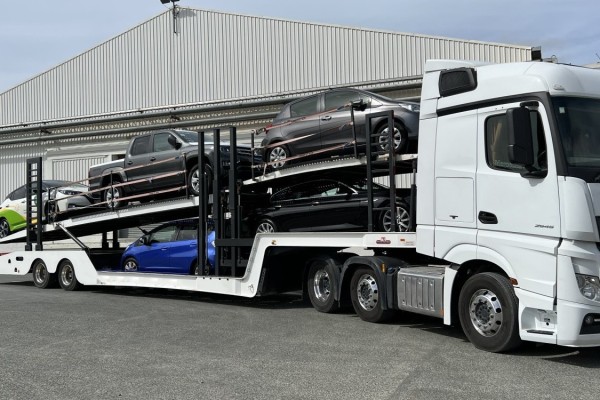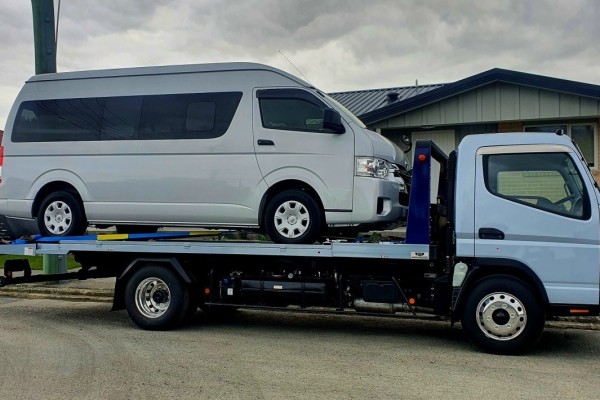The Complete Guide to Shipping Goods to New Zealand: Customs, Duties and Regulations

Moving to a new country can be a massive challenge, both logistically and emotionally. Whether you choose air freight or sea freight, making the right choices and decisions initially when relocating your household goods and possessions to New Zealand can take much of the stress away.
A good starting point for this whole process is understanding what qualifies as “household goods” in the eyes of NZ Customs.
What are considered “household goods”?

Putting it simply, household goods are the everyday used goods that compromise your home environment such as.
- beds
- lounge furniture
- outdoor furniture
- china and kitchen sundries
- chairs
- tables
- whiteware
- kitchen appliances
- television, audio, computers
- sporting equipment
- gardening equipment
- cycles
- The definition also includes much more substantial items such as non-motorized caravans and trailers [but not vehicles or motorbikes].
It is highly recommended that any goods such as gardening equipment, outdoor footwear, camping equipment, and any outdoor sporting equipment that has come into contact with grass or soil are thoroughly cleaned before packing. If you do not do this, you run the risk of holdups with your shipment and significant extra costs, as the Ministry for Primary Industries, who inspect your shipment on arrival, will insist that this is done at your expense before the goods concerned are released.
Here is a comprehensive list of items that are considered household goods. Duty or GST is not applicable to items on this list if you are moving to New Zealand for the first time or if you are moving back to New Zealand after 21 months or more away.
It is worth noting that in order to qualify for duty-exempt household goods, you MUST be in New Zealand prior to the arrival of your goods [even if only by a few days] and be in possession of either a New Zealand or Australian Passport or documentation proving permanent residency in either New Zealand or Australia. There are also a number of other categories of work, migrant, and visitor visas that also qualify.
Can I buy new household goods to bring with me?
You can bring new or near-new household effects with you; however, anything that is either unused or brand new will be subject to GST of 15% along with applicable import duties. Few goods now attract import duties; in the case this is applicable, it is typically around 5 to 10% of the value of the item. Items that are under 12 months old or appear to be unused/new may fall into this category too.
What items are prohibited to bring to New Zealand?
In terms of prohibited goods, there are two broad categories. Firstly, items that are considered a threat to biosecurity in New Zealand, and secondly, items that are illegal to have, own, use, or bring into New Zealand.
Biosecurity prohibited items

Being an island nation, New Zealand, along with Australia, has some of the strictest biosecurity laws in the world, so it is important to understand what you can and cannot bring in, as fines for breaching these rules can be substantial.
New Zealand Customs, along with the Ministry for Primary Industries, share in the responsibility for keeping the people, animals, and natural resources of New Zealand protected from unwanted pests and diseases which could potentially decimate crops and harm livestock [such as foot and mouth disease, for example].
The MPI takes responsibility for checking all shipments of goods coming into the country for bio-security risks. If risk items are found, they may be destroyed, treated, or re-shipped back to the country of origin [all at the owner's expense]
The lists of prohibited items that you should not pack fall into these main categories-
- Packets of foodstuffs
- Any products made by bees, including honey, propolis, and honeycomb.
- Seeds, bulbs, tubers, and any form of plant cuttings.
- Packaging materials such as straw and untreated wood.
- Items restricted under the Convention on International Trade in Endangered Species... This covers items such as coral, elephant tusks, whalebone, turtle shell, and other animal-related products from species under threat. [There are some items that can be imported with a permit or special exemption].
The Ministry for Primary Industries offers a comprehensive guide entitled “Moving to New Zealand, what you need to know.” which covers this in greater detail.
Prohibited items that you cannot bring into New Zealand
The following items cannot be brought into New Zealand.
- Material considered objectionable- this covers quite a wide range of subject matter, from child pornography to violence and incitement to commit acts of terrorism. It also covers a wide range of different formats, from cd to computer drive, video, and written literature.
- Some firearms which are illegal to own in New Zealand, along with certain types of weapons, including but not limited to flick knives, butterfly knives, and some bladed weapons, also including knuckledusters and Tasers.
- Drug-taking paraphernalia, including utensils, pipes, and vaporizers.
- Sunscreen that does not meet NZ and Australian standards.
- High-powered laser pointers
- Certain radio equipment which can interfere with emergency frequencies.
- And [not surprisingly], any equipment which you are planning to use for the commission of a crime
Further details on prohibited items can be found here on the NZ Customs website.
If you are choosing to send some smaller shipments to New Zealand by International Post, it is recommended that you check the prohibited and restricted items section on the New Zealand Post website here, as this list is far more comprehensive and includes many items that are completely acceptable to send by sea or air freight.
Items that must be declared
There is also a lengthy list of items that MUST be declared upon entry to New Zealand for bio-security reasons.
These include such things as
- Outdoor sporting or camping equipment, which may be contaminated with soil.
- Items made from wood, bamboo, or cane.
- Food products, particularly meat, seafood, and poultry.
- Animal products such as fur, feathers, bones, skins, or stuffed animals.
- Medicines, supplements, or health products that include animal products.
- Items made from wood.
- Gardening equipment.
- Any equipment that has been used on or with animals.
The MPI guide previously mentioned also includes contact details for the MPI if you have any queries about your goods, along with links to all required documentation, which you will need to fill in to accompany your goods.
It is worth noting here that MPI costs for checking and assessing [and if necessary treating] goods considered to be a bio-security risk or concern can be significant, and the shipper bears these. The relevant link to these costs is also provided in the MPI guide.
What do our customers say?


For every (wise)move


























